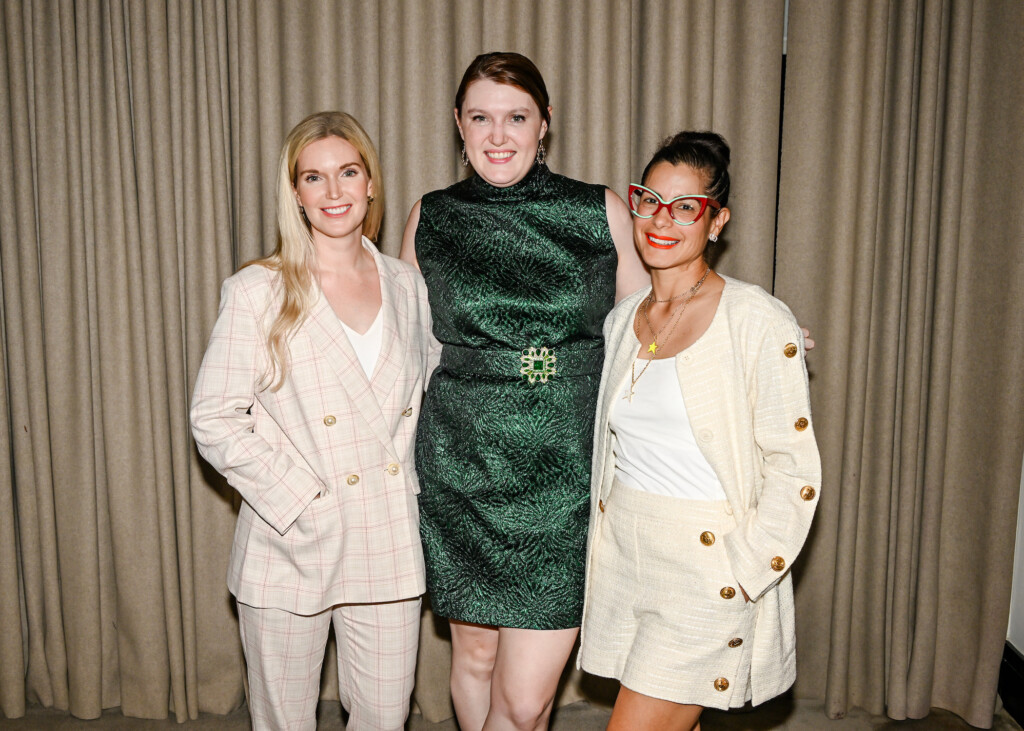Philanthropic organizations that focus on “awareness” are often met with unfair derision. The usual criticism is that they should instead be focusing on solutions. But, in some cases, awareness of a problem is the first — and biggest — step in fixing it. Case in point: the little-known “voluntary intoxication” loophole which allows rapists to walk free. It’s something Lizzie da Trindade-Asher, Laura Day Webb, and Casey Kohlberg, the founders of the Cura Collective, are trying to close.
Currently, if a person who became willingly intoxicated (say, after partying with friends) is raped, it is not considered rape under New York law. The narrow definition is due to lawmakers attempting to fight instances of involuntary intoxication, like date rape drugs. Instead, they accidentally left other victims with no path to justice. “It was meant to serve a good purpose, but instead it has fully come back around and it’s actually doing a disservice to survivors,” explains Asher. “It’s not that difficult to change the language and yet, somehow, for four years running, this bill has come up in Albany and it has never become the law.”
Asher, Webb, and Kohlberg are no strangers to the philanthropy circuit (it’s actually how they met). Between them, they are involved with everything from Save Venice to the Lewa Wildlife Conservancy, as well as some of the city’s most prominent hospitals—the latter of which sparked the creation of the Cura Collective. In an effort to support frontline workers as Covid tore through New York City in 2020, the friends donated meals and small care packages to hospitals across the city. Seeing how nimbly they were able to work as a trio, the women planned to pivot their focus to female entrepreneurship post-pandemic. But when Asher happened upon the loophole, it became their priority.

Photo by Dasha BrookIn 2022, she read a case in a law journal recounting an incident in Minnesota in which a rapist avoided punishment due to an intoxication loophole. She couldn’t believe such a thing could exist in New York. Google told her otherwise. Asher brought it to the attention of her cofounders, and Webb suggested they do something about it. In addition to staging events in the city and a social media campaign, the Cura Collective held a press conference in Foley Square this past October. In attendance was former U.S. congresswoman Carolyn Maloney; current assemblymen Jeffrey Dinowitz and Andrew Hevesi; as well as top executives from numerous anti-sexual assault and public safety organizations.
Changing the law is not impossible. Minnesota, for example, has since closed its loophole. The issue will come up for a fifth time during New York’s legislative cycle beginning in January. In order for the loophole to close, two bills will have to pass: one in the State Assembly and one in the State Senate. It can only get to Governor Kathy Hochul if both bills are ratified. Until then, Asher, Webb, and Kohlberg are hoping to educate New Yorkers about the issue through, of course, awareness.
“It’s really important to know the limitations of the system under which we live. It wouldn’t occur to any one of us that because we chose to drink early in the night, we gave away our ability to consent later in the evening,” says Asher. “It’s really appalling.”





